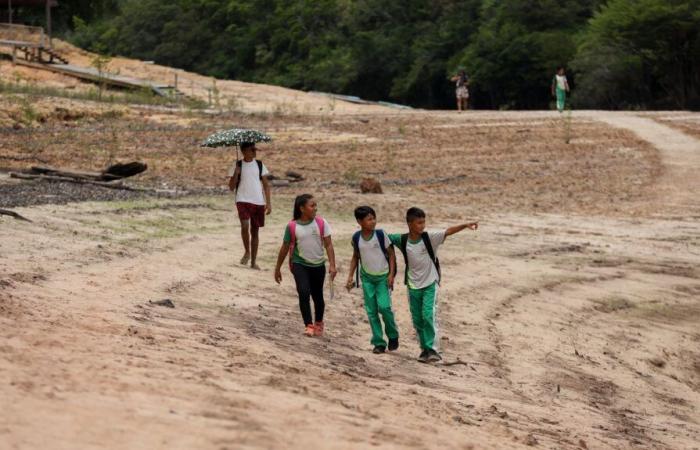Record droughts are becoming a “new normal” across the world, which requires leaders to “rethink radically” their management, alerts the UN on Monday, December 2, on the first day of the sixteenth COP on desertification, organized in Riyadh (Saudi Arabia).
The year 2024, which will likely be the hottest ever measured on Earth, was marked by several devastating droughts around the Mediterranean, in Ecuador, Brazil, Morocco, Namibia, Malawi… They caused fires , shortages of water and food.
Each year, droughts directly affect 55 million people and constitute “one of the costliest and deadliest risks globally”underlines the atlas published by the United Nations Convention to Combat Desertification (UNCCD), in partnership with the scientific research center of the European Commission (JRC).
The consequences of droughts are “less visible and attract less attention than sudden events like floods and earthquakes”but they should not be underestimated. By domino effect, droughts constitute a “systemic phenomenon” affecting multiple sectors, such as agriculture, energy supply, commerce and shipping, while threatening the health of ecosystems and people.
Counting their indirect effects, to the extent “sometimes difficult to estimate and predict”they affected 1.84 billion people in 2022 and 2023, around 85% of whom live in low- or middle-income countries, recalls the atlas, based on a UN report published at the end of 2023. D By 2050, three out of four people in the world will be affected, according to their projections, due to global warming caused mainly by the combustion of fossil fuels.
Since the 19th century, the Earth's average temperature has warmed by 1.1°C. Scientists have established with certainty that this increase is due to human activities, which consume fossil fuels (coal, oil and gas). This warmingunprecedented in its speed, threatens the future of our societies and biodiversity. But solutions – renewable energies, sobriety, reduced meat consumption – exist. Discover our answers to your questions about the climate crisis.






